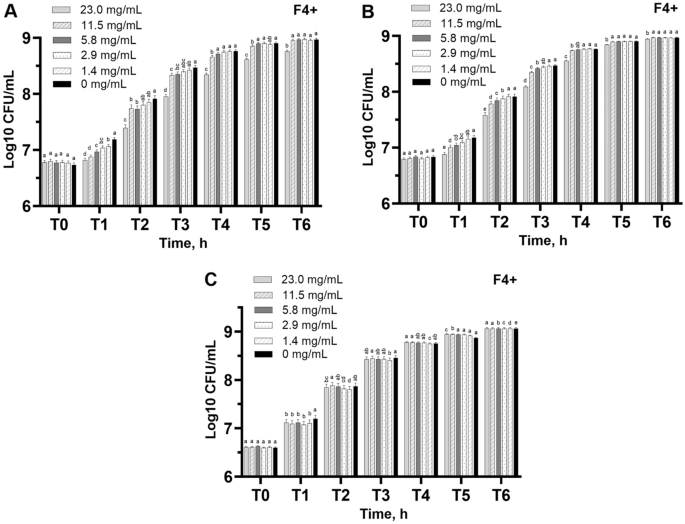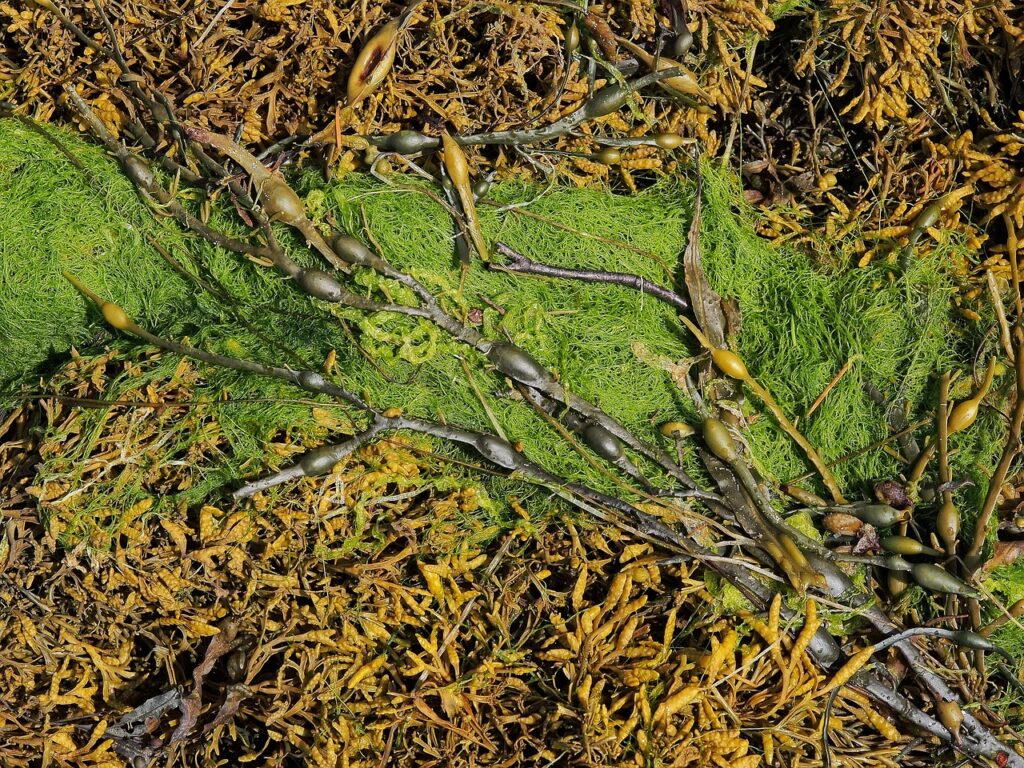In modern livestock farming, both animal health management and environmental sustainability are critical concerns. Overuse of antibiotics has led to the emergence of antibiotic-resistant bacteria, which is a global issue. As a solution, natural alternatives like seaweed have gained attention. Recent studies have shown that seaweed species such as brown algae (Ascophyllum nodosum) and green algae (Ulva lactuca) possess antibacterial and antioxidant properties, making them promising candidates for use in livestock feed. In this article, we will explore the potential of seaweed for sustainable agriculture, based on the latest research.
- The Benefits of Seaweed’s Antibacterial Properties in Livestock Farming
- Seaweed’s Antioxidant Effects on Livestock Health
- Seaweed’s Contribution to Sustainable Agriculture
- Challenges and Future Prospects for the Practical Use of Seaweed Feed
- A World Where Meat Raised on Seaweed Feed May Soon Be a Reality
- References
The Benefits of Seaweed’s Antibacterial Properties in Livestock Farming
In livestock farming, the use of antibiotics is often necessary to ensure safe and high-quality protein production. However, the overuse of antibiotics has resulted in the emergence of “antibiotic-resistant bacteria,” a serious global issue. While there are efforts to limit the use of antibiotics to avoid the rise of resistant bacteria, this often leads to challenges in balancing stable production with disease control.
Recent research has shown that feeding livestock certain types of seaweed can provide strong antibacterial effects, particularly against harmful pathogens like pathogenic E. coli. This significantly reduces the risk of livestock contracting diseases and allows for more sustainable livestock farming without reliance on antibiotics. The antibacterial compounds derived from seaweed are incredibly powerful, offering a natural means of preventing and treating diseases, which holds great promise for the future of sustainable livestock farming.
Furthermore, compounds found in brown and green algae not only suppress the growth of harmful bacteria but also improve the intestinal environment of livestock. By balancing the gut microbiota, the overall health of livestock improves, leading to enhanced growth efficiency. This results in healthier, more disease-resistant animals, which ultimately provides consumers with safe, high-quality livestock products.
Seaweed’s Antioxidant Effects on Livestock Health
In addition to its antibacterial properties, seaweed contains many compounds with antioxidant effects, which help reduce oxidative stress in animals. Oxidative stress is a leading cause of cellular damage, disease, and aging in all living organisms, including livestock. In high-stress farming environments, supplying antioxidants is crucial for maintaining livestock health.
Studies have shown that antioxidant compounds derived from brown and green algae exhibit significant effects when used as feed for pigs. These compounds help reduce oxidative damage in pigs and enhance their immune function. Furthermore, the antioxidant effects improve the quality of livestock meat, offering potential benefits to consumers in terms of product quality.
The dual benefits of improving both livestock health and meat quality make seaweed feed an attractive option.
Seaweed’s Contribution to Sustainable Agriculture
Seaweed is a “renewable” resource that is relatively easy to cultivate, and it is expected to play a crucial role in sustainable agriculture. Notably, seaweed cultivation is known to contribute to the reduction of greenhouse gases. This is because seaweed absorbs carbon dioxide from the ocean, a phenomenon known as “blue carbon.”
Moreover, using seaweed as feed reduces the amount of harmful substances in livestock waste, thus helping to mitigate environmental pollution caused by livestock farming. The high nutritional value and digestibility of seaweed allow livestock to efficiently utilize it, reducing the overall volume of waste. Additionally, in ruminants, such as cows, seaweed feed has been shown to reduce methane emissions from belching, suggesting that the environmental benefits of seaweed feed are substantial.
By utilizing seaweed as livestock feed, not only does livestock health improve, but the environmental impact of feed production is also reduced. To achieve sustainable livestock farming, the use of environmentally friendly feed is essential, and seaweed appears to be a very promising option in this regard.
Challenges and Future Prospects for the Practical Use of Seaweed Feed
There are some challenges to applying seaweed-derived compounds as livestock feed. First, the content and effects of these compounds can vary depending on the type of seaweed and the time of harvest, making it necessary to select and process the optimal seaweed for stable results. Furthermore, the cost and stability of supply when using seaweed on a large scale are also important considerations. Detailed simulations tailored to the specific region of implementation are essential for determining the best type of seaweed, its cultivation, and its processing. Addressing these challenges requires further research and technological development aimed at improving the efficiency and consistency of seaweed production.
In the future, it is likely that seaweed-based feed will become widely adopted, offering a way to reduce the use of antibiotics while maintaining livestock health. By using seaweed-derived feed, sustainable agriculture can be achieved, balancing environmental protection with food production.
A World Where Meat Raised on Seaweed Feed May Soon Be a Reality
Seaweed has great potential as a natural source of antibacterial and antioxidant compounds, offering significant contributions to both livestock health and the realization of sustainable agriculture. By utilizing brown and green algae as livestock feed, antibiotic use can be reduced, and environmentally friendly livestock farming can be advanced. With further research and technological development, seaweed’s potential can be fully harnessed to play a vital role in creating a sustainable future.
Given the growing interest and ongoing research, the day when we can taste meat raised on seaweed feed may not be too far off.
References





コメント